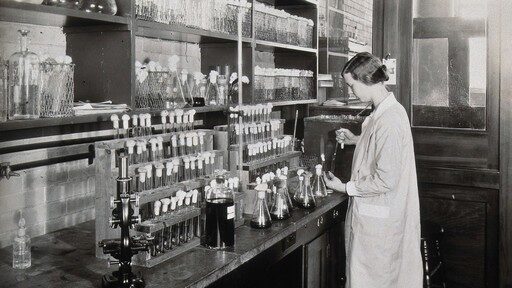
For the 9th time since its establishment in 2015, the world was facing the International Day of Women and Girls in Science on February 11th. The global community to help women and girls in achieving equality and therefore their dreams, has come a long way, even if its end still remains hidden. The goal at the end of the path is for everyone to start with the same prerequisites concerning societal expectations, education and possibilities.
Women and Girls in Science – A Positioning
In 2015 the General Assembly of the United Nations decided to establish an annual recognition of the importance of women and girls in science. Due to society’s structural premises shaping our history and presence, many young girls are fighting with expectations they cannot conform to and fields of knowledge they are afraid of being interested in. These findings can especially be seen in the STEM fields (Science, Technology, Engineering and Mathematics) that count to the most crucial fields concerning the world’s economy. At the moment only 33.3 % of all students in STEM related fields of study are women. Despite being intellectually equally enabled, the encouragement on the part of schools, family and society is missing.
These structural flaws shall vanish according to the 2030 Agenda of the UN, committed to “not leaving anyone behind”. In the center of this year’s celebration is the “Closing of the Gender Gap in Science”. If you want to read more about this mission, you can find the “Call for Action” here.
Through the way, our world is shaped right now, with its demographic situation, climate crisis and the challenges of developing a sustainable societal and economic environment, the necessity of unlocking all the sealed-up potential arises. We cannot dismiss this huge depot of potential and creativity for our future development and have to let everyone, without restraints whatsoever, rise up to her or his true potential.
Europeana celebrating the International Day of Women and Girls in Science
Following the celebratory day, Europeana focused on putting the spotlight on women working and leading in tech and digital cultural heritage across the Europeana Intitiative. The female tech and cultural heritage specialists were asked to think about what they would like to be asked about their work and give the answer immediately by themselves. This way, the focus should fall onto what they thought was the most important about their work at or with Europeana. If you are interested in their answers, go to EuropeanaPro.
Additional Material
- UNESCO Post
- Women and Girls in Science – Official Website
- United Nations Post
- Call to Action – Closing the Gender Gap in Science
- Eight questions to women working in tech and cultural heritage
- Europeana materials on women in science
